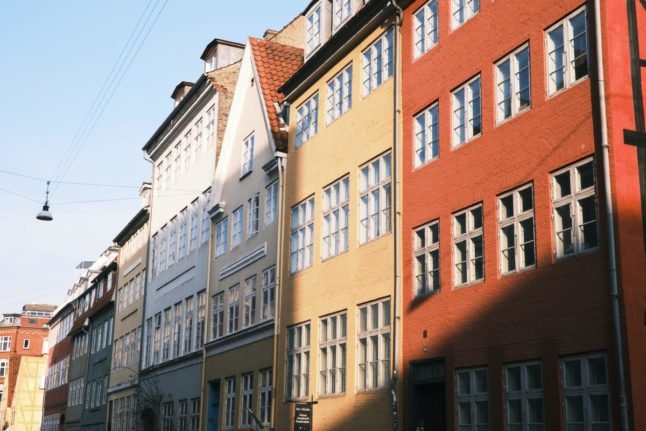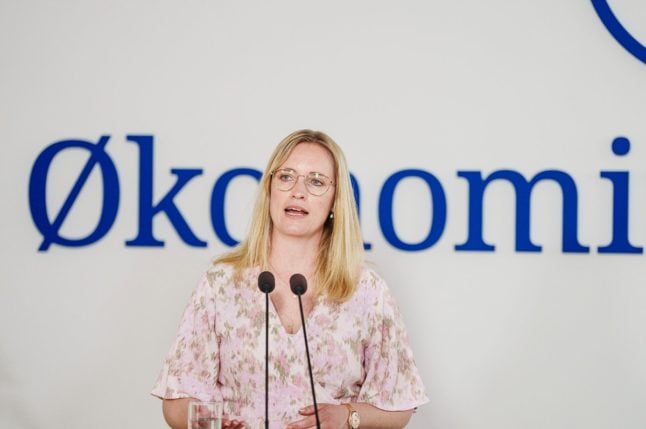The Danish housing market has seen a lacklustre start to the year, with a prolonged phase of dwindling real estate prices.
Just a few months ago, the majority view among industry experts in the country was that the market was going to be characterised by a sense of pessimism and falling prices in 2023.
READ MORE: What buyers in Denmark can expect over the coming months
But now, it seems that Denmark’s housing market slowdown is beginning to lose its grip – at least in the Copenhagen area, where apartment prices are increasing again.
This turn of events has caught real estate experts somewhat off guard, and as the housing market landscape changes, the recent shifts are prompting a reassessment of expectations.
The main driver behind rising prices in Copenhagen
“In Copenhagen, we’ve seen a couple of months of rising apartment prices. That came as a bit of a surprise, but we think that what is going on is connected to the (property) tax reform – we see sales are up by a lot this year,” Mira Lie Nielsen, the chief analyst at one of Denmark’s leading financial services groups, Nykredit, told The Local.
“Yes, it’s from a low level, but still, it’s surprising. The supply in Copenhagen is low again; there’s a new-found interest in buying,” said Lie Nielsen.
Why some are buying at higher prices
The expert explained that, due to the tax changes that are due to materialise in 2024, many buyers are looking to make a purchase by the end of this year – even at a higher price – to make sure they get to enjoy lower taxes in the years ahead (you can find all the details on Denmark’s property tax reform in our in-depth explainer on the issue).
“If you buy this year, you will be able to have an apartment to live in with lower taxes for many years. Next year, the taxes will rise significantly, so what we see now is a spike in temporary demand and interest in buying property in Copenhagen. So, even if you buy today at a higher price, you’ll get the benefit of having a home for many years with a low tax…
“If you’re a family and plan on staying in the same place for a long time, and if you can get a low-interest or fixed-interest rate mortgage, then you’re in a good position to buy now – despite the high prices,” Lie Nielsen said.
She also noted that this spike in demand and prices is unlikely to spill over into next year when Nykredit expects to see the effects of interest rate cuts and new real estate taxes.
“In Copenhagen, we expect prices to decline again next year,” Nykredit’s chief analysts said.
How Copenhagen plans to support first-time buyers
Despite the optimism many prospective first-time buyers felt early on in 2023, the current market in the capital is not looking too promising for those who are yet to acquire their first home.
“First-time buyers are not in a good position. The decline in prices close to 15 percent in Copenhagen – before the latest two months of small price increases – was not enough to outweigh the extra costs stemming from higher interest rates, so first-time buyers remain in a bad position,” Lie Nielsen told The Local.
However, the local authorities in Copenhagen Municipality have recently invested a lot of attention to the issue of supporting first-time buyers.
A large majority in the Copenhagen City Council passed a proposal in late June that could lead to the introduction of a new form of housing ownership in Denmark’s capital.
The new type of ownership would be a form of housing where buyers could acquire part of an apartment as owners while renting the rest over a few years until they eventually have enough capital to acquire the entire home.
The proposal, which was put forward by the Social Democrats (Socialdemokratiet), the Green Left (SF), the Danish Social Liberal Party (Radikale Venstre), and Venstre, was adopted with the support of all parties except the Liberal Alliance.
With the decision in place, the competent city bodies must now prepare a proposal for how the new form of housing ownership could be implemented in Copenhagen before the policy can formally be adopted.




 Please whitelist us to continue reading.
Please whitelist us to continue reading.
Member comments